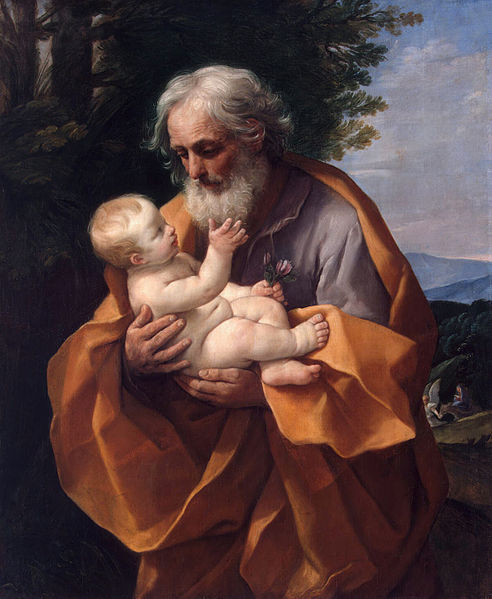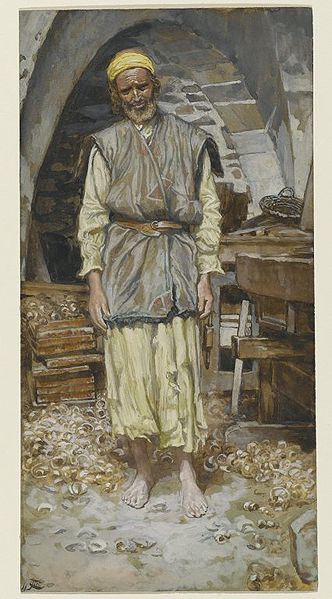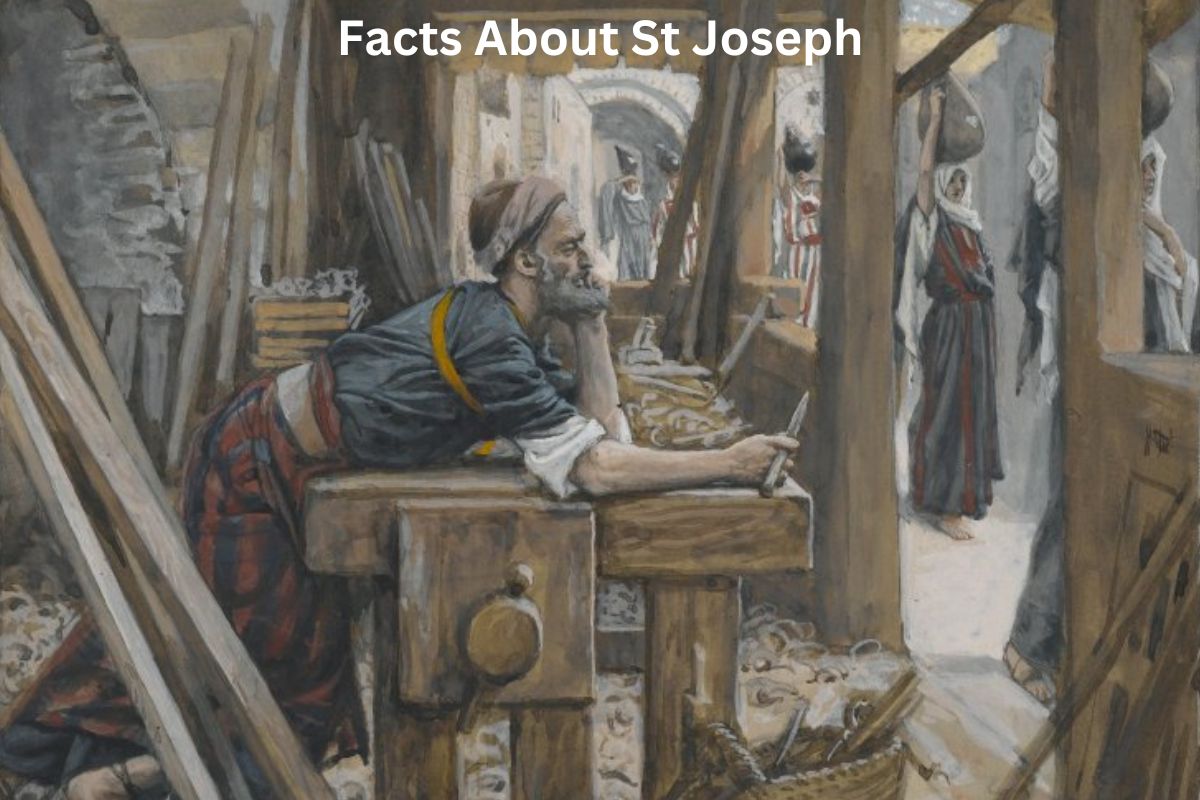St. Joseph, a central figure in Christianity, is celebrated for his pivotal role as the foster father of Jesus and the husband of the Virgin Mary.
His life and significance encompass a rich tapestry of biblical events, devotion, and timeless virtues that continue to inspire believers around the world.
In this exploration, we delve into key aspects of St. Joseph’s life, his role as a patron saint, biblical references, and his enduring influence in contemporary faith and spirituality.
St Joseph Facts
1. Feast Day: March 19th (Roman Catholic)
St. Joseph’s feast day is celebrated on March 19th in the Roman Catholic Church. This date is significant as it honors his role as the earthly father and guardian of Jesus.
Also Read: Facts About Mary Mother of Jesus
In some Catholic traditions, there is also a separate celebration on May 1st, known as the Feast of St. Joseph the Worker, which focuses on his role as a carpenter and worker.

2. Patron Saint of: Workers, Fathers, Carpenters, Universal Church
St. Joseph holds the title of patron saint for various groups and causes:
- Workers: St. Joseph is considered the patron saint of workers because of his own profession as a carpenter. His life and dedication to his work exemplify the dignity and value of labor.
- Fathers: As the earthly father of Jesus, St. Joseph is also recognized as the patron saint of fathers and a model for fatherhood and family life.
- Carpenters: St. Joseph’s occupation as a carpenter is a significant aspect of his life, and he is often invoked by carpenters and craftsmen seeking his intercession.
- Universal Church: In 1870, Pope Pius IX declared St. Joseph the patron of the universal Church. This designation underscores his importance as a protector and guardian of the entire Christian community.
3. Biblical Figure: Mentioned in Matthew and Luke
St. Joseph is mentioned in the New Testament, primarily in the Gospels of Matthew and Luke.
In the Gospel of Matthew, St. Joseph is introduced as a just and righteous man who was betrothed to Mary, the mother of Jesus.
When he learned that Mary was pregnant, he initially planned to divorce her quietly, not wanting to expose her to public disgrace.
Also Read: Saints Facts
However, an angel appeared to him in a dream, revealing the divine origin of Mary’s pregnancy and instructing him to take her as his wife. This event emphasizes St. Joseph’s obedience to God’s will.
The Gospel of Luke provides genealogical information, tracing Joseph’s lineage back to King David, highlighting his royal ancestry.
4. The Annunciation: Angel’s message in a dream
The Annunciation is a pivotal event in the life of St. Joseph. According to the Gospel of Matthew, after Joseph discovered that Mary, his betrothed, was pregnant, he initially planned to divorce her quietly to spare her public shame.
Also Read: St Raphael Facts
However, in a dream, an angel of the Lord appeared to him and delivered a divine message. The angel explained that Mary’s pregnancy was the result of the Holy Spirit’s intervention, and the child she carried was the Son of God.
The angel instructed Joseph to take Mary as his wife and to name the child Jesus, which means “God saves.” This dream and the angel’s message are central to St. Joseph’s decision to accept his role as the earthly father and guardian of Jesus, demonstrating his obedience to God’s will.

5. Flight into Egypt: Protecting Jesus from King Herod
Another significant event involving St. Joseph is the Flight into Egypt, which is detailed in the Gospel of Matthew.
After the birth of Jesus, King Herod became threatened by the news of a new king in Bethlehem and ordered the massacre of all male infants under the age of two in the region.
To protect Jesus from this threat, an angel appeared to Joseph in a dream and instructed him to flee to Egypt with Mary and the child.
St. Joseph promptly obeyed, and the Holy Family sought refuge in Egypt until Herod’s death. This event underscores St. Joseph’s role as the protector of Jesus and his willingness to act decisively to keep the Holy Family safe.
6. Silent Figure: No recorded dialogue in the Gospels
St. Joseph is often described as a “silent” or “hidden” figure in the Bible because there are no recorded words or spoken dialogue attributed to him in the Gospel accounts.
Despite his lack of spoken words, St. Joseph’s actions and obedience to God’s guidance speak volumes about his character and faith.
His willingness to accept the challenging circumstances surrounding Jesus’ birth and upbringing, as well as his prompt response to divine messages in dreams, highlight his deep trust in God and his role in God’s plan for the salvation of humanity.
St. Joseph’s silent, yet steadfast, presence in the life of Jesus and Mary serves as a powerful example of faith and humility for Christians.
7. Death: Peaceful, in the presence of Jesus and Mary
St. Joseph’s death is not recorded in the Bible, and the details of his passing are not known. However, tradition holds that he died a peaceful and holy death in the presence of Jesus and Mary.
This belief is based on the idea that since St. Joseph was the head of the Holy Family, it is fitting that he would have been surrounded by his loved ones in his final moments.
Some Catholic traditions also hold that, like the Virgin Mary, St. Joseph’s body and soul were assumed into heaven at the end of his earthly life, although this belief is not as widely accepted as the Assumption of Mary.

8. Catholic Devotion: Prominent in the 19th and 20th centuries
Devotion to St. Joseph has a long history in the Catholic Church, but it gained particular prominence in the 19th and 20th centuries.
Popes such as Pope Pius IX and Pope Leo XIII played significant roles in promoting devotion to St. Joseph. Pope Pius IX declared him the patron of the universal Church in 1870, emphasizing his central role in the life of the Church.
Various prayers, novenas, and devotions have been dedicated to St. Joseph, including the “Litany of St. Joseph” and the “Consecration to St. Joseph,” which have become popular ways for Catholics to express their devotion and seek his intercession.
9. Titles: St. Joseph the Worker, Guardian of the Redeemer, Terror of Demons
St. Joseph is known by various titles that reflect different aspects of his life and role:
- St. Joseph the Worker: May 1st is celebrated as the Feast of St. Joseph the Worker. This title highlights his profession as a carpenter and the dignity of labor. It is a day to recognize and pray for workers and laborers.
- Guardian of the Redeemer: St. Joseph served as the guardian and protector of Jesus, who is the Redeemer of humanity. This title underscores his crucial role in the salvation story.
- Terror of Demons: This title emphasizes St. Joseph’s powerful intercession and protection against evil forces. It reflects the belief that demons flee at the mention of his name, making him a formidable spiritual protector.
10. Contemporary Significance: Role model for humility, faith, and obedience
St. Joseph’s example continues to hold great significance for Catholics and Christians around the world. He is seen as a model of humility, faith, and obedience to God’s will. St. Joseph’s life demonstrates the importance of family, fatherhood, and the sanctity of work.
Many individuals and families turn to St. Joseph in times of need, seeking his intercession and guidance in matters related to family, employment, and spiritual life. His enduring relevance in the modern world reflects the timeless values and virtues he exemplified.
